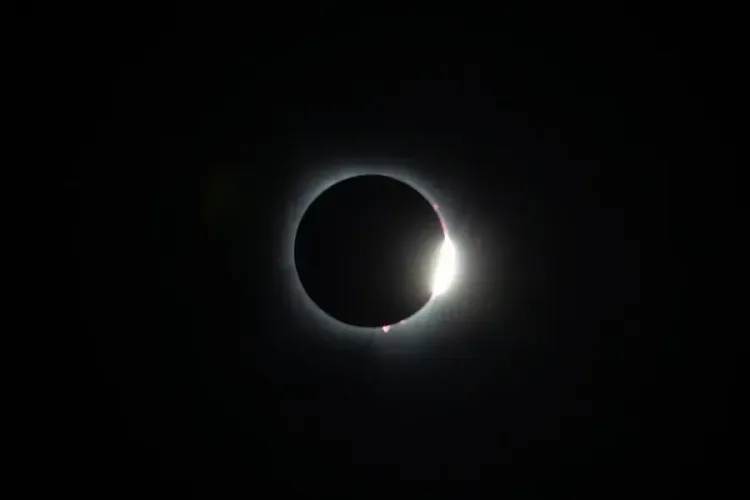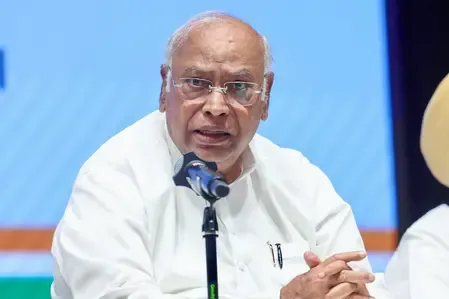What to Expect from the Final Solar Eclipse of 2025?

Synopsis
Key Takeaways
- The final solar eclipse of 2025 will occur this Sunday night.
- It is a partial solar eclipse, with 85% of the Sun obscured in some areas.
- Not visible from India, but observable in Australia and parts of the ocean.
- The eclipse will peak at 1:11 a.m. (Indian time) on Monday.
- This event occurs just before the autumnal equinox.
New Delhi, Sep 21 (NationPress) Following the awe-inspiring Total Lunar Eclipse, also known as the Blood Moon, that captivated observers earlier this year, astronomy enthusiasts around the globe are preparing for another remarkable celestial occurrence—the final solar eclipse of 2025 will take place this Sunday night (Indian time).
This partial solar eclipse, occurring on Sunday, will not be visible from India. However, individuals in regions such as Australia, Antarctica, the Pacific Ocean, and the Atlantic Ocean will have the chance to experience this unique event.
A solar eclipse transpires when the Moon moves directly between the Sun and Earth, casting a shadow on our planet and completely blocking sunlight. During a partial eclipse, only 85 percent of the Sun will be obscured in certain locations by the Moon.
During a partial eclipse, the Earth's shadow appears significantly dark on the side of the Moon that faces Earth. The view from Earth during such an event is determined by the alignment of the Sun, Earth, and Moon.
The eclipse will commence at 10:59 p.m. (Indian time) on Sunday night, reach its peak at 1:11 a.m. (Indian time) early on Monday, and conclude at 3:23 a.m..
The year 2025 has witnessed a total of four eclipses: two partial solar eclipses and two total lunar eclipses. This Sunday night’s partial eclipse is the second and final eclipse for the year.
Additionally, it will occur just one day before the autumnal equinox, which signifies the official onset of fall in the northern hemisphere, occurring on September 22.
Astronomically, this marks a period when the Sun is positioned directly above the equator.
On this date, the Earth is neither tilted toward nor away from the Sun, resulting in nearly equal lengths of day and night, approximately 12 hours each (with minor exceptions).
Looking ahead, the next solar eclipses are set for February 17 and August 12, 2026. Although these will again not be visible from India, the country will have the opportunity to witness a solar eclipse in August 2027.








